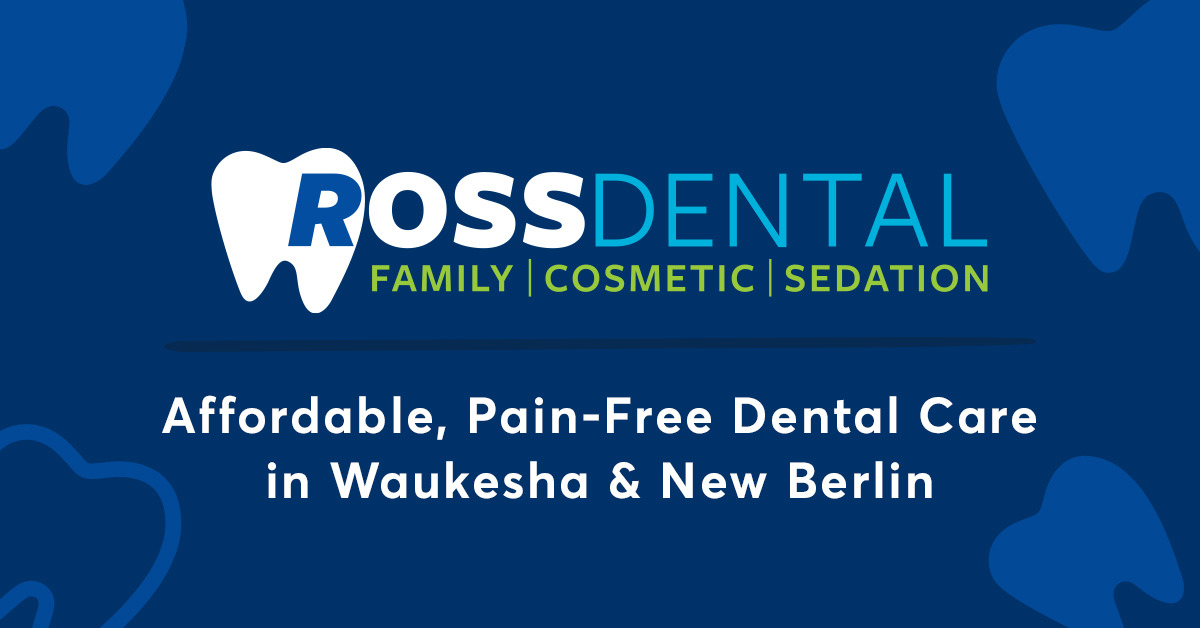

Finance
What Is DPO Dental Insurance?
Modified: December 30, 2023
Discover the benefits of DPO Dental Insurance and how it can provide financial security for your dental needs. Explore coverage options and save on dental expenses today.
(Many of the links in this article redirect to a specific reviewed product. Your purchase of these products through affiliate links helps to generate commission for LiveWell, at no extra cost. Learn more)
Table of Contents
Introduction
Dental insurance plays a crucial role in ensuring proper oral health and maintaining a beautiful smile. However, navigating through the various types of dental insurance plans can be overwhelming. One popular option that many individuals consider is DPO dental insurance. In this article, we will dive into what DPO dental insurance is, how it works, and whether it might be the right choice for you.
Before we delve into the details of DPO dental insurance, let’s first understand the concept of dental insurance in general. Dental insurance is a type of health coverage that helps individuals manage the costs associated with oral care. It provides coverage for a range of dental services, including preventative care, restorative procedures, and even orthodontic treatment.
DPO dental insurance, also known as a Dental Preferred Provider Organization, is a specific type of dental insurance plan that emphasizes a network of dentists. With DPO dental insurance, you have the flexibility to choose from a network of participating dentists who have agreed to provide services at predetermined rates. This network of dentists is typically extensive, offering a wide range of options for you to receive dental care.
Unlike other dental insurance plans, DPO dental insurance does not require you to have a primary care dentist or obtain referrals for specialty services. This means that you have the freedom to see any dentist within the network without first obtaining permission from a primary dentist or insurance provider.
The main advantage of DPO dental insurance is the freedom to choose your own dentist. This can be particularly beneficial for individuals who already have a trusted dentist or who want the flexibility to switch between dentists as needed. Additionally, DPO dental insurance often comes with lower out-of-pocket costs compared to other types of dental plans.
However, it’s important to note that DPO dental insurance also has its limitations. While there is generally a wide range of dentists within the network, your options may be limited if you prefer to see a specific dentist who is not part of the network. Additionally, if you choose to see a dentist outside of the network, you may have to pay higher out-of-pocket costs or be responsible for filing your own insurance claims.
Understanding Dental Insurance
Dental insurance is a type of health insurance that provides coverage for a wide range of dental services. It helps individuals manage the financial costs associated with routine check-ups, preventive care, restorative treatments, and even more extensive procedures such as orthodontics and oral surgery.
When it comes to dental insurance, it’s important to understand the key terms and concepts involved. Here are a few important terms to be familiar with:
- Premium: The amount of money you pay on a regular basis (usually monthly) for your dental insurance coverage.
- Deductible: The amount you must pay out-of-pocket before your insurance coverage kicks in. This is typically an annual amount.
- Copayment: A fixed amount you pay at the time of each dental visit or service.
- Coinsurance: The percentage of the total cost of a dental service that you are responsible for paying, after you’ve met your deductible.
- Maximum Coverage Limit: The maximum amount your dental insurance plan will pay for covered services in a given year.
- Preventive care: Services such as routine cleanings, X-rays, and dental exams that are designed to help maintain good oral health and prevent dental problems.
- Restorative care: Services such as fillings, crowns, and root canals that are aimed at repairing or replacing damaged teeth.
- Orthodontics: The branch of dentistry that deals with the alignment and straightening of teeth, usually through the use of braces or clear aligners.
It’s worth noting that dental insurance plans vary in terms of coverage and cost. Some plans cover only basic preventive care, while others provide more comprehensive coverage. The cost of dental insurance can also vary depending on factors such as your location, age, and the extent of coverage provided.
When considering dental insurance, it’s important to carefully review the specific coverage details and limitations of each plan. This will help you determine if the plan aligns with your dental needs and budget. Additionally, it is crucial to read the fine print, including any waiting periods or exclusions, as dental insurance plans may have certain restrictions and limitations.
Understanding the basics of dental insurance and the specific terms and concepts involved will empower you to make informed decisions and select a dental insurance plan that best meets your needs. Dental insurance plays a critical role in maintaining good oral health, providing peace of mind knowing that you have coverage in place for both routine care and unexpected dental issues that may arise.
What is DPO Dental Insurance?
DPO dental insurance, also known as a Dental Preferred Provider Organization, is a specific type of dental insurance plan that emphasizes a network of dentists. It is designed to provide members with access to a wide range of dental care providers who have agreed to provide services at negotiated rates.
With DPO dental insurance, you have the freedom to choose any dentist within the network without the need for a primary care dentist or obtaining referrals for specialty services. This flexibility allows you to receive the dental care you need while enjoying the convenience of visiting a dentist of your choice.
One of the key features of DPO dental insurance is the extensive network of participating dentists. The network typically includes a wide range of dental specialists and general dentists, ensuring that members have access to a comprehensive range of dental services. This includes routine check-ups, cleanings, fillings, root canals, extractions, and even more specialized services such as orthodontics and periodontal treatments.
DPO dental insurance plans often come with a set schedule of covered services and copayment amounts, which means you will know upfront what your out-of-pocket costs will be for various dental procedures. This transparency can be helpful in budgeting for dental care and avoiding any surprises when it comes to your dental expenses.
It’s important to note that while DPO dental insurance plans provide the flexibility to see any dentist within the network, they may have limitations if you prefer to see a dentist who is not part of the network. If you choose to visit a dentist outside the network, you may have to pay higher out-of-pocket costs or be responsible for filing your own insurance claims.
Another advantage of DPO dental insurance is that it often comes with lower out-of-pocket costs compared to other types of dental plans. This is because dentists within the network have agreed to provide services at negotiated rates, which may result in discounted fees for dental procedures.
Overall, DPO dental insurance offers a balance between flexibility and cost savings. It allows you to choose your own dentist while also providing access to a network of dental care providers who offer services at negotiated rates. If you value the freedom to select your dentist and want a predictable payment structure for your dental care, DPO dental insurance may be an excellent choice for you.
How Does DPO Dental Insurance Work?
DPO dental insurance, or Dental Preferred Provider Organization, operates through a network of dentists who have agreed to provide services at a set fee schedule. Understanding how DPO dental insurance works is essential to maximize your benefits and navigate the system effectively.
When you have DPO dental insurance, you can choose any dentist within the network without needing a referral. This flexibility allows you to select a dentist based on your personal preferences or prior relationships with a particular dental office.
Here’s a step-by-step breakdown of how DPO dental insurance works:
- Enrollment: To have DPO dental insurance coverage, you must enroll in a plan offered by the insurance company. This typically involves completing an application and paying the required premiums.
- Network Dentist: Once enrolled, you have access to a network of dentists who have agreed to provide services at a negotiated fee. It’s essential to check the insurance provider’s website or contact their customer service to find dentists near you who are part of the network.
- Choose a Dentist: With DPO dental insurance, you have the freedom to select any dentist within the network. You can choose a dentist based on their location, reputation, or your personal preferences.
- Schedule an Appointment: Contact the selected dentist’s office and schedule an appointment for your dental care needs. It’s important to inform them that you have DPO dental insurance, as they will need to verify your coverage and eligibility.
- Receive Dental Services: Visit the dentist’s office and receive the necessary dental services. These can range from routine check-ups and cleanings to more extensive procedures like fillings, root canals, or orthodontic treatment.
- Payment: At the dental office, you will be responsible for paying any applicable copayments or coinsurance as specified by your dental plan. The dentist’s office will bill the insurance company for the remaining balance.
- Claim Processing: The dental office will submit the necessary paperwork and information to the insurance company to process the claim. This includes the details of the services provided and the associated fees.
- Insurance Reimbursement: Once the claim is processed and approved, the insurance company will reimburse the dental office for the covered portion of the services. You will receive an Explanation of Benefits (EOB) that outlines the breakdown of the payment.
It’s important to note that while DPO dental insurance offers flexibility and allows you to choose any dentist within the network, your out-of-pocket costs may vary depending on the specific plan and the services received. Services such as preventive care are often covered at a higher percentage, while more extensive treatments may require higher copayments or coinsurance.
Understanding how DPO dental insurance works empowers you to make informed decisions about your oral health. It’s recommended to review the details of your specific plan and contact the insurance provider or dental office if you have any questions or need clarification on coverage or payment.
Benefits of DPO Dental Insurance
DPO dental insurance, also known as a Dental Preferred Provider Organization, offers several benefits that make it an attractive option for individuals seeking dental coverage. Understanding the advantages of DPO dental insurance can help you make an informed decision about your oral health care needs.
- Flexibility to Choose Your Dentist: One of the primary benefits of DPO dental insurance is that it allows you to choose any dentist within the network. This flexibility is particularly advantageous if you already have a trusted dentist or prefer to see a specific dental professional.
- Wide Network of Dental Providers: DPO dental insurance plans typically have an extensive network of participating dentists, including general dentists and dental specialists. This ensures that you have access to a diverse range of dental services and can receive specialized care when needed.
- Lower Out-of-Pocket Costs: DPO dental insurance often comes with lower out-of-pocket costs compared to other types of dental plans. This is because dentists within the network have agreed to provide services at negotiated rates, which can result in reduced fees for dental procedures.
- Comprehensive Coverage: DPO dental insurance plans typically provide coverage for a wide range of dental services, including preventive care, restorative treatments, orthodontics, and oral surgery. This comprehensive coverage ensures that you can address all your dental needs under one plan.
- No Need for Primary Dentist or Referrals: With DPO dental insurance, there is no requirement to choose a primary care dentist or obtain referrals for specialty services. This allows you to have the freedom to see any dentist within the network without the need for additional authorization.
- Predictable Payment Structure: DPO dental insurance plans often have a set fee schedule and copayment amounts for various dental procedures. This transparency helps you budget for your dental care expenses and avoid unexpected surprises.
- Preventive Care Emphasis: DPO dental insurance plans prioritize preventive care, covering routine check-ups, cleanings, and X-rays at a higher percentage or with minimal out-of-pocket costs. This focus on preventive services helps maintain good oral health and potentially avoid more extensive dental procedures in the future.
- Continuity of Care: If you already have a dentist within the DPO dental insurance network, choosing a DPO plan allows you to retain that relationship and continue receiving care from the same provider.
It’s important to review the specific details of a DPO dental insurance plan and assess how it aligns with your dental care needs. Consider factors such as the coverage offered, network dentists available in your area, and the cost of premiums and out-of-pocket expenses.
DPO dental insurance provides the flexibility, access to a wide range of dental providers, and potential cost savings that many individuals seek in dental coverage. It offers peace of mind knowing that you can choose your dentist and receive coverage for the dental services you need to maintain a healthy and beautiful smile.
Limitations of DPO Dental Insurance
While DPO dental insurance, or Dental Preferred Provider Organization, has several benefits, it’s important to be aware of its limitations. Understanding these limitations can help you make an informed decision about whether DPO dental insurance is the right choice for your dental care needs.
- Network Restrictions: One of the main limitations of DPO dental insurance is that it operates within a network of dentists. While these networks are typically extensive, your options may be limited if you prefer to see a specific dentist who is not part of the network.
- Out-of-Network Costs: If you choose to see a dentist outside of the DPO dental insurance network, you may have to pay higher out-of-pocket costs or be responsible for filing your own insurance claims. This can result in increased expenses for dental care received outside the network.
- Geographical Limitations: DPO dental insurance networks can vary by location. If you frequently travel or move to a new area, it’s important to check whether your current dentist or preferred providers are within the network of dentists covered by your DPO plan.
- Limited Provider Choice: While DPO dental insurance allows you to choose any dentist within the network, your options may still be limited compared to other types of dental insurance plans. If having a wide range of provider choices is important to you, it may be worth considering other dental insurance options.
- Specialty Care Restrictions: While DPO dental insurance plans typically have dental specialists within their networks, coverage for specialized treatments or procedures may have specific requirements or limitations. It’s essential to review the plan details to understand any restrictions regarding specialty care.
- Waiting Periods: Some DPO dental insurance plans may have waiting periods for certain procedures or services. This means that you may need to wait a specified period of time before receiving coverage for specific treatments. This limitation could impact your ability to address immediate dental needs.
- Annual Maximums: Like other dental insurance plans, DPO dental insurance often has annual maximums. This means that the plan will only cover up to a certain amount of dental expenses in a given year. If you require extensive dental treatment, you may reach the plan’s maximum coverage limit and have to pay out-of-pocket for any additional costs.
It’s important to thoroughly review the limitations of a DPO dental insurance plan and consider how they align with your dental care requirements. Assess whether the network dentists meet your preferences, if the coverage restrictions will impact your access to specialized care, and if any waiting periods or maximums may affect your utilization of dental services.
While DPO dental insurance offers many benefits, it’s crucial to weigh the limitations and determine whether the plan’s features and network align with your dental care needs and preferences. Remember, each individual’s dental needs are unique, so it’s essential to choose a dental insurance plan that caters to your specific requirements.
Is DPO Dental Insurance Right for You?
Deciding whether DPO dental insurance, or Dental Preferred Provider Organization, is the right choice for you depends on several factors. Evaluating these factors can help you determine if DPO dental insurance aligns with your dental care needs and preferences.
Consider the following points to assess if DPO dental insurance is a suitable option:
- Preference for Choice of Dentist: If having the freedom to choose your own dentist is important to you, DPO dental insurance might be a good fit. With DPO plans, you can select any dentist within the network without needing a referral.
- Existing Relationship with a Dentist: If you have an established relationship with a trusted dentist who is part of the DPO dental insurance network, it can be advantageous to choose a DPO plan to continue receiving care from that provider.
- Access to a Wide Network of Dentists: DPO dental insurance plans typically have extensive networks of participating dentists, offering a broad range of dental services and specialists. If having access to a diverse range of dental providers is important to you, DPO dental insurance may be a suitable choice.
- Desire for Lower Out-of-Pocket Costs: DPO dental insurance often comes with lower out-of-pocket costs compared to other dental insurance plans. If cost savings are a priority for you, DPO dental insurance can help reduce the financial burden of dental care.
- Interest in Comprehensive Coverage: DPO dental insurance plans typically provide coverage for a wide range of dental services, including preventive care, restorative treatments, orthodontics, and more. If you prefer a dental plan that offers comprehensive coverage, DPO dental insurance can be a good option.
- Frequent Travel or Relocation: If you frequently travel or are planning to relocate, it is crucial to consider the geographical limitations of the DPO dental insurance network. Make sure dentists in the network are available in the areas you visit or plan to move to.
- Consideration of Limitations and Exclusions: Review and consider the limitations and exclusions of a DPO dental insurance plan, such as waiting periods and annual maximums. Assess if these limitations may impact your immediate dental needs or long-term dental care requirements.
Ultimately, the decision of whether DPO dental insurance is right for you depends on your individual needs, preferences, and budget. It’s important to carefully review the details of the plan, consider your dental care requirements, and weigh the benefits and limitations of DPO dental insurance against other available options.
Additionally, consulting with a dental insurance specialist or reaching out to the insurance provider directly can provide further guidance on selecting the most suitable dental insurance plan that meets your specific needs. By taking the time to evaluate your priorities and research different options, you can make an informed decision and secure the dental coverage that best aligns with your oral health goals.
Conclusion
DPO dental insurance offers a combination of flexibility, access to a network of dentists, and potential cost savings. It allows you to choose your own dentist, provides coverage for a wide range of dental services, and often comes with lower out-of-pocket costs compared to other dental insurance plans.
However, it’s important to consider the limitations of DPO dental insurance, such as network restrictions, potential out-of-network costs, and geographical limitations. Assessing these limitations and comparing them to your dental care needs and preferences is crucial in determining if DPO dental insurance is the right choice for you.
If you value the freedom to choose your own dentist, have a network of dental providers available to you, and want a predictable payment structure for your dental care, DPO dental insurance may be a suitable option. It can provide peace of mind knowing that you can select a trusted dentist and have coverage for a range of dental services.
Before making a decision, carefully review the details of the DPO dental insurance plan you are considering. Assess its coverage, network dentists, cost structure, and any restrictions or limitations that may impact your dental care. Additionally, it’s beneficial to consult with a dental insurance specialist or reach out to the insurance provider directly to clarify any questions or concerns.
Ultimately, choosing the right dental insurance plan is a personal decision that depends on your unique circumstances and dental care needs. By taking the time to explore your options and understand the details of each plan, you can make an informed choice and secure the dental coverage that meets your needs, ensures access to high-quality dental care, and provides peace of mind for a healthier smile.














